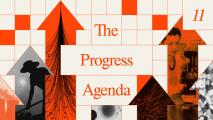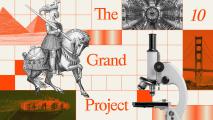Let me start with a frank admission: I love me. I enjoy my own company. When I think about death, I often think “I’m really going to miss me.” And yet I’m not hankering for eternal life. I’m not even eager to live past 75, roughly the average lifespan of a man in America.
A significant number of people do seem to want to live forever, or at least a lot longer than their current life expectancy. Investors wouldn’t be pumping billions of dollars into longevity research every year if they didn’t see a market for life-extension treatments. Their interest made me wonder: Why do some people want to live forever while others don’t?
The social science research into this question isn’t robust, and how someone answers a hypothetical can differ drastically from how they’d answer the same question in the real world. But there are some notable examples — from a 2013 study by the Pew Research Center about the views of Americans on radical life extension to a 2017 study by the journal Religion, Brain & Behavior exploring how religious beliefs affect a person’s attitude toward living longer.
If given a choice between extra years of sickness and death, most respondents said they’d choose death.
Based on these surveys and others, some patterns emerge. A major one: Most people support the creation of life-extension technologies. Yet only a minority say they would use them — and they would only do so if they could expect to enjoy their extra time in this world.
As one participant in a focus group highlighted in a paper published in the American Journal of Bioethics in 2009 put it: “Whether I would take it would depend on how I felt I was doing at that point in my life, if that makes sense, if I felt I was being productive and useful and that it would do good for me to continue doing what I was doing, or to continue growing in that way.”
Most respondents in that survey and others said they want their longer life to be a healthy one — if given a choice between extra years of sickness and death, they’d choose death. Yet some participants were concerned about other issues, too.
Belief in the afterlife had a remarkably strong association with attitudes toward life extension.
In the 2013 Pew survey, more than half of the respondents said they thought expanding the average lifespan to at least 120 years would be “bad for society.” It’s possible their views could reflect a fear that the combination of lower birth rates and a larger segment of the population drawing money from Social Security and public health systems could strain our social safety nets.
Another common concern was that life-extension treatments would not be fairly distributed to all members of society: 79% of respondents in the Pew survey believed “everyone should be able to get these treatments if they want them.” But two-thirds believed only the wealthy would have access to them.
These ethical qualms have an impact on people’s willingness to embrace life-extension technology — people who worried more about the ethical impacts were less likely to endorse using the tech themselves. Roughly half of all respondents had such concerns, suggesting that longevity advocates will need to convince a lot of people that the therapies will be a social good.
There’s only one way to actually find out what, if anything, comes after life — by reaching its end.
One of the biggest factors in how people feel about life extension is what they think death actually means. Those who expect it to be followed by an eternity of oblivion are more supportive of life extension, while those who are more religious or believe in an afterlife are less likely to support it, at least for themselves. The difference isn’t trivial. The 2017 study in Religion, Brain & Behavior found that belief in the afterlife had a remarkably strong association with attitudes toward life extension, a much higher correlation than most findings in social science.
This association with afterlife beliefs resonates with me. I’m not much for organized religion, but I do consider myself a deist, which is something like an optimistic agnostic. I believe there’s probably some kind of unknowable creator behind natural law, and the beauty of this creator is visible in, not refuted by, the natural world. Ultimately, there’s only one way to actually find out what, if anything, comes after life — by reaching its end. I’m curious enough to take that leap — even if it means saying a permanent goodbye to the me I’ve come to know and love.
Based on the data, I’m in the majority. That’s why I don’t think even the promise of perfect health and fully ethical treatments will ever be enough to make immortality universally desirable. Unless someone can definitively prove that death is the end, too many of us will be determined to find out what, if anything, comes next.
We’d love to hear from you! If you have a comment about this article or if you have a tip for a future Freethink story, please email us at [email protected].





















